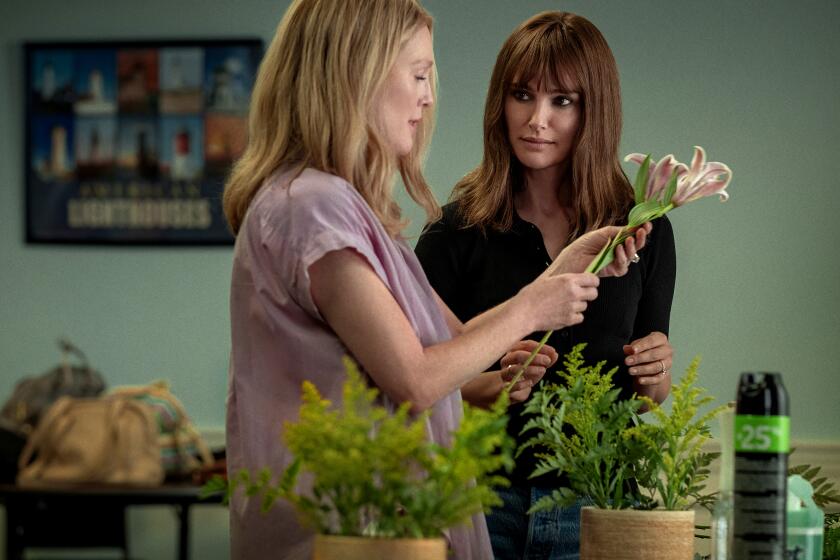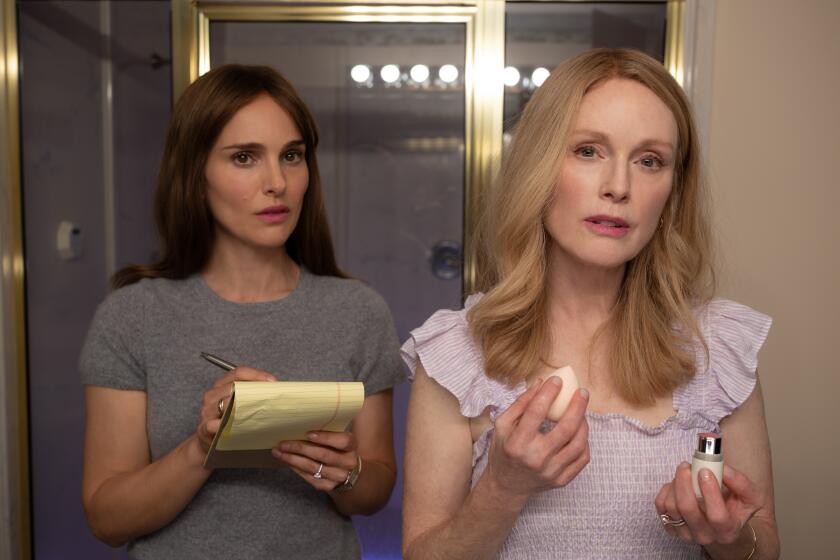Samy Burch dips into our infatuation with scandal and bad behavior with ‘May December’
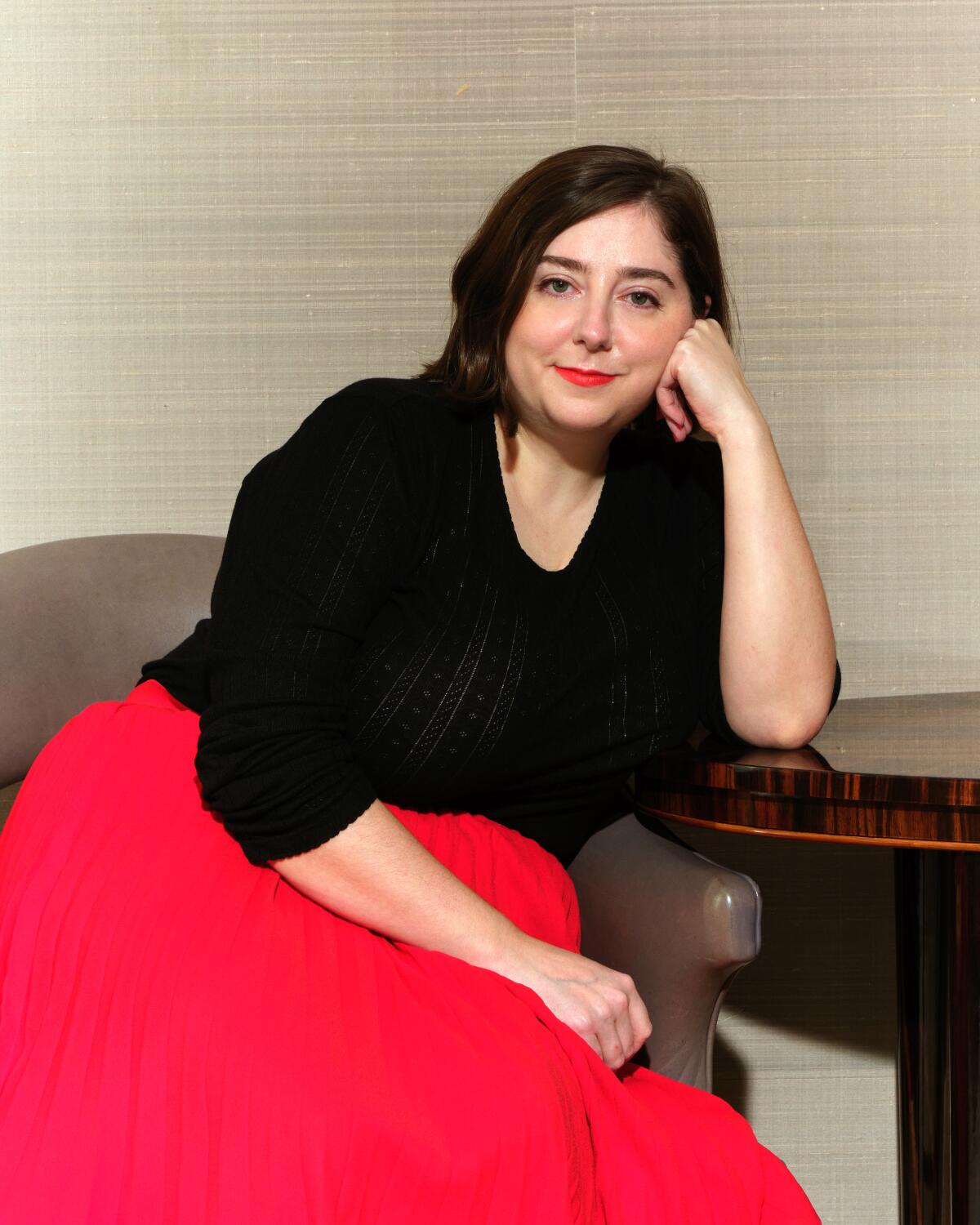
- Share via
Writing the first draft of “May December” in the spring of 2019 was not very comfortable. Mostly because I was crammed into the coat closet of our old apartment: a 3-by-3 space that we had taken the rod out of and installed a folding tray-table that I used as a desk. There was no room to move once seated, but all the better. I put up some nice wallpaper so I had something to stare at desperately in the middle of the night. Sometimes I would stick my arm out of one of the slats in the door and my now-husband, Alex (who outlined the story with me), would hand me an Oreo cookie. For morale.
I’m not sure how many cookies it took, and I really regret not counting.
The director of “Carol” discusses his latest film, its connection to the Mary Kay Letourneau scandal, working with Julianne Moore and his career to date.
This idea of a television actress (Natalie Portman) coming to a small town to study the notorious tabloid figure she is set to play in a “ripped from the headlines” independent film felt right from the beginning. As a satire of the industry and the vampiric nature of playing real people who are alive. But also as an opportunity to peel the layers back, to see more intimately inside this fictional tabloid marriage, one that started when Joe (Charles Melton) was in middle school, and Gracie (Julianne Moore) was 36, before landing herself in prison and on the covers of magazines in the supermarket.
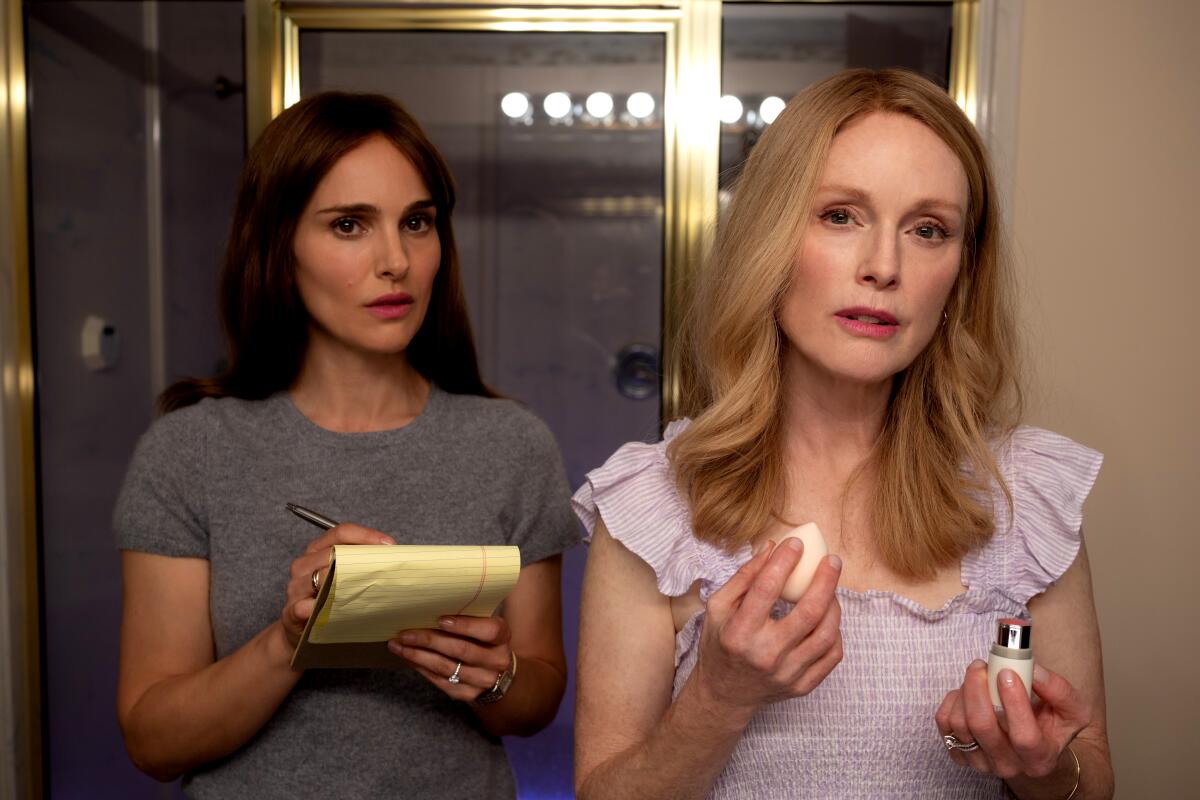
In setting the story 20-some years after the fact, it felt like there was more air. We weren’t staring a dreadful thing directly in the face, but seeing the remnants. The buildup of denial that covers everything in their house like a film. The way that trauma can spread through families. But — in a fun way.
In this era that we find ourselves of extreme oversimplification, I have found myself craving the difficult. Muddled, complicated, hands-in-the-air, I’m not sure, that’s above my pay grade, who knows. Questions that lead to more questions. Shifts in perspectives and tone. Remove, gallows humor, confusion, contradiction.
One of my favorite notes from Todd Haynes during this process that I have written on a note card above my desk: “Add more fog.”
Natalie Portman, Julianne Moore and Charles Melton enact a mesmerizing psychological triangle in the latest self-deconstructing melodrama from Todd Haynes (“Carol”).
Sometimes I feel critical of the true-crime machine, of the audience with the bottomless appetite for misery. Our need to re-create these horrible human tragedies with authority — with a “take.”
The child beauty queen murdered in her home, the woman who exploited other women and didn’t pay her taxes, the athlete who murdered his wife. Or that hot serial killer, or that awkward serial killer, or that creepy Midwestern serial killer. The school shooters who didn’t have any friends. The bad nurse, the bad mother, the bad wife. The adult woman who “fell in love” with the very young boy.
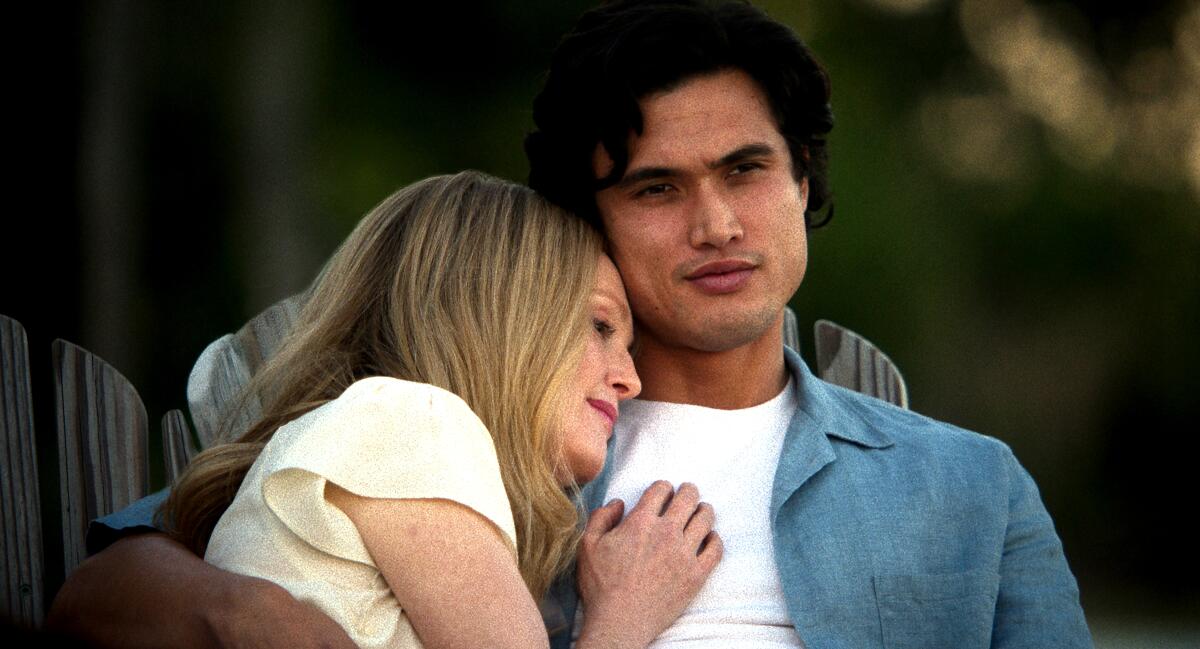
Every time I read something ghastly in the news, I think, “I wonder which studio has optioned this.”
But on the other hand, maybe it’s natural. Cathartic. We’re living in a violent world, more aware than ever of the chaos, the unfairness, the hopelessness, so what’s the harm? It can feel good to have faith in our institutions — Columbo knows who did it, and the Spotlight team will get to the genuine truth. And the monsters — they are easy to spot, and they’ll be caught in the end, and they have nothing whatsoever to do with us or our humanity. Easy peasy.
I’m interested in characters like Gracie, because there are certain parts of her that are unknowable. It’s what the entire story orbits around: Why did she do it? And how aware was she that what she was doing was wrong?
We can’t ever really know. And that’s an uncomfortable thought to sit with. But may I recommend some Oreos?
More to Read
From the Oscars to the Emmys.
Get the Envelope newsletter for exclusive awards season coverage, behind-the-scenes stories from the Envelope podcast and columnist Glenn Whipp’s must-read analysis.
You may occasionally receive promotional content from the Los Angeles Times.
